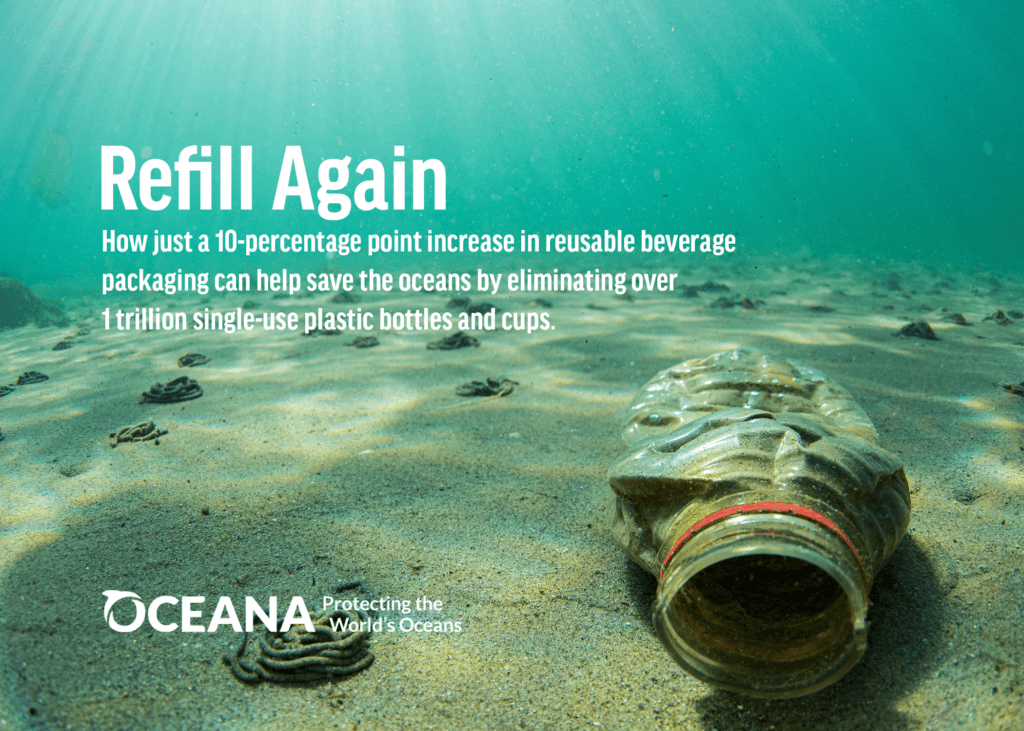Report | November, 2023
Refill Again
Oceana analyzed forecasted packaging market and aquatic plastic pollution data and determined that just a 10-percentage point increase in reusable packaging by 2030 can eliminate over 1 trillion single-use plastic bottles and cups. This shift has the potential to prevent up to 153 billion of these containers from entering the world’s oceans and waterways. To put this in perspective, 1 trillion plastic bottles and cups stacked on top of each other would result in a single-use plastic tower that would reach to the moon and back over 300 times.
Most importantly, this 10-percentage point increase is clearly possible. The world’s leading soft drink companies, The Coca-Cola Company and PepsiCo, have large existing reusable packaging systems and have already pledged to increase the volume of beverages they sell in reusable packaging by 10 percentage points. It is imperative for both companies, which have a history of not meeting commitments, to follow through and for other beverage companies to step up.
The sheer volume of plastic used to sell beverages is staggering and requires real solutions. Oceana estimates that in 2022, the global population used the equivalent of 1.5 trillion single-use plastic bottles and cups, and that up to 168 billion of these containers will become pollution in aquatic systems. A study published in the journal Nature Sustainability in 2021 found that plastic bottles were the second most common litter item found in surveys across seven aquatic environments globally.
The proven solution in the fight against this crisis is reusable packaging. Refillable bottles (also known as returnable bottles), though disappearing in some parts of the world like the United States and the United Kingdom, remain popular in many other countries. Reusable beverage packaging prevents plastic pollution because the bottles can be used up to 50 times and the cups over 100 times. Every instance of reuse prevents a plastic bottle or cup from being thrown away or carelessly trashed, and possibly ending up in our oceans. Reusable beverage packaging can have the lowest carbon footprint of any packaging option.
Oceana is calling on global beverage and bottling companies to increase reuse and to reduce the production and use of single-use throwaway plastic. All beverage and bottling companies should set targets to increase reusable packaging by at least 10 percentage points (and hopefully beyond) and to allocate appropriate investment and marketing resources to ensure growth goals are achieved.
- Take Action: Tell soft drink companies: give me refillable bottles and reusable cups!
- Press release (English)
- Press release (Spanish)
- Press release (German)
Visit Oceana.org/our-campaigns/refillables/ to learn more.
Media contacts:
Gillian Spolarich / gspolarich@oceana.org
Anna Baxter / abaxter@oceana.org




